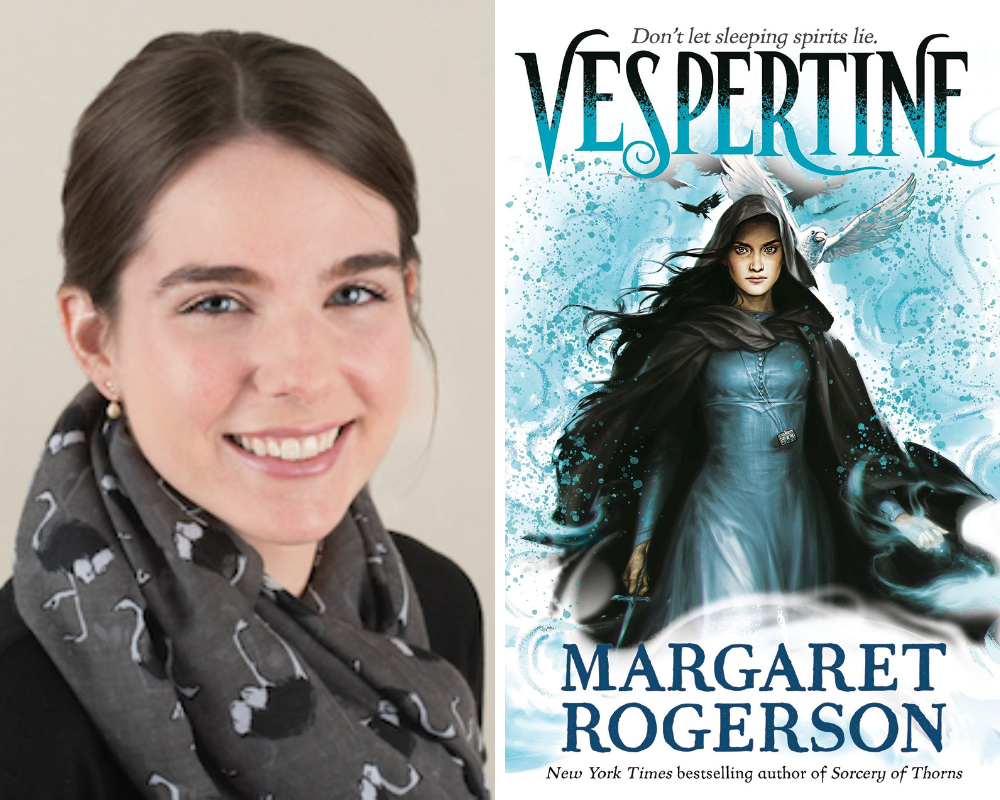Margaret Rogerson on a different kind of romance

As an author, reader expectations can be tricky. My first two novels prominently feature romance; I would even call my debut An Enchantment of Ravens a fantasy romance, since the central relationship is critical to the plot. Meanwhile, my most recent book doesn’t include a romance at all.
Or does it?
There isn’t any time for kissing in Vespertine, which is about a girl training to be a nun who awakens an ancient spirit bound to a saint’s relic and wields its power to battle the undead. I describe it as “Venom meets Joan of Arc” with a generous helping of Dark Souls. The heroine Artemisia isn’t interested in romance; she’s too busy fighting ghosts. And if you asked her spirit, the revenant, about romance, it would deliver a choice reply such as “I’m a skeleton, you moron.”
So when Vespertine first came out, I braced myself to hear from disappointed readers who keenly felt the absence of a romance. But surprisingly, nearly the opposite happened—I started getting feedback along the lines of, “Even though it wasn’t a romance, it felt like one,” and even, “I normally consider romance a requirement, but I didn’t miss it in this book.” It was one of those moments, precious to an author, in which we realize that readers have picked up on something private in our writing—something so personal we didn’t think it would be relatable to anyone else. Because in a lot of ways, I did write the relationship between Artemisia and the revenant as a romance… just my kind of romance. It’s brimming with the classic elements of an enemies to lovers relationship: initial mistrust followed by impression-shattering revelations, bonding in desperation, ultimate ride-or-die devotion. Only in Vespertine’s case it’s more like enemies to soulmates, skipping the kissing part on its way to “I would die for you, you wretched nun.”
Growing up as an aro/ace kid, I never could fully relate to the relationships on TV or the love songs on the radio. I enjoy reading and writing romances, but only because they deliver the kind of focused intensity, high conflict dynamics that interest me in fictional relationships. The mindset with which I approached Vespertine was—what if I took all of that intensity and conflict, and slipped it into an unconventional partnership? How would my readers take it? Would they accept it in lieu of a “real” romance?
I should have given my readers more credit; I didn’t need to ask those questions. If there’s one thing I’ve learned as an author, it’s that if you’re vulnerable with your writing, if you’re honest and don’t hold yourself back, people will relate to it no matter what. Even when if it’s a different kind of romance, starring a nun and a ghost.
Vespertine was published by Simon & Schuster on 13 October 2022


